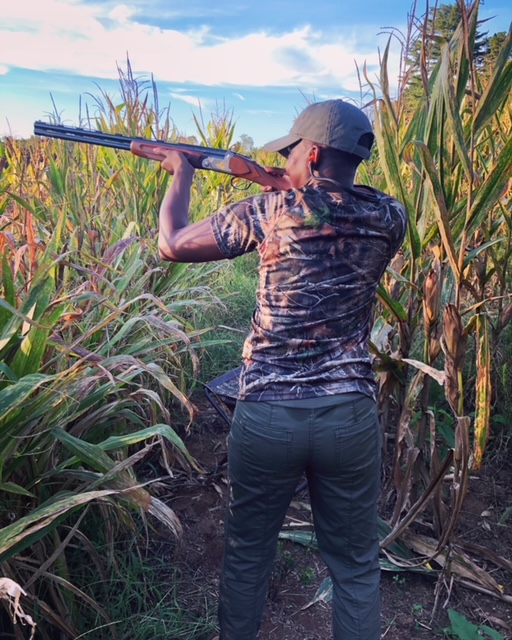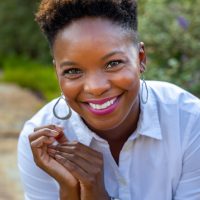Ed’s note: Elephant is a diverse community of sixteen million readers and hundreds of writers. We are reader-created. We welcome all points of view, especially when offered with more sources and less invective, more frankness and less PR. Have opinions or thoughts about this article? Join the conversation by commenting below or sharing your own view here.
~
I am Black. I am female. I hunt—and I like it.
Those statements mean nothing to some, but to others, they scramble the fragile mind that houses a stereotypical Black woman. Black women are not a monolith—I say this about Black folks generally all the time. While many things thread our existence together, we all tread diverse paths just the same.
Black women are often held to limiting expectations while simultaneously being America’s most educated demographic group—by race and gender. Stereotypes of the angry, uneducated baby mama persist in the face of our astounding academic achievements or any other barrier that we decide to smash through. Our ability to accomplish the impossible or enter spaces not typically occupied by us—due to a simple lack of exposure, representation, or outright hostility—is merely one of our superpowers.
The outdoors is one of the spaces where Black people are underrepresented on a large scale. More specifically, Black women are even more underrepresented in outdoor sports, but we are out there, make no mistake.
Black folks have a rich history of hunting and farming. Historically, migration to the north separated many African Americans from their roots of hunting and agriculture as they had in the south. The land was illegally stripped away or unjustly kept from Black farmers and sharecroppers. The ability to hunt and farm our own land was forced out of our culture as Blacks moved north in droves during the Great Migration.
In addition to land ownership issues, the layer of gun ownership rights denied Black Americans well into the 19th century, with many documented lamentations and bloody battles to support the founding governing body’s stance against Black gun ownership, both state and federal. Although a significantly more complex history than stated here, these components—consciously or unconsciously—have shaped American society’s views on who should have access to land and the inalienable right to bear arms.
Despite growing up in Indiana, one can understand why a Black suburban girl like me would be squeamish about gun ownership and have no ties to hunting culture.
Hunting was nowhere on my radar as an interest or hobby before meeting a man who is passionate about it. Don’t get me wrong, I enjoy hiking and reveling in nature as a preferred activity. Additionally, eating clean has become increasingly more important to me over the years. The whole farm-to-table restaurant movement is one that I am here for. I want to know where my food comes from. Still, I never contemplated hunting, killing, cleaning, and cooking an animal myself.
I never put much thought into hunting beyond it being the preferred sport of aggressive white men. Harmful stereotypes that I fully own and now characterize wholly as unfair. I have become a fan of questioning my biased opinions. I have learned that the things that keep us polarized, we rarely know much about intimately. Typically, people don’t care about something until it affects them personally.
First, I always assumed that the argument of hunting promoting conservation was a smokescreen to cover blood-thirsty hunters’ desires; however, I found this to be true. Numerous organizations are promoting these efforts. The federal Pittman-Robertson Act of 1937 implemented an excise tax on firearms and supplies to fund the state government’s wildlife projects. Once I realized the conservancy claim was valid, I felt more comfortable spending my dollars within an industry I was initially leery of.
I read and watched hunting shows before I finally took on the state of North Carolina’s six-hour hunter education course to obtain my hunting license. Steve Rinella of MeatEater is a significant influencer on my comfortability with hunting. Then, I went on to private land to test out shooting rifles and learned that I was a natural at this thing that had never crossed my mind to do. Each step I took to cure my ignorance of a world I harshly judged further enriched my own.
Through leaning into something that I was initially uncomfortable with the idea of doing, I was becoming. I was becoming a more empowered woman, more educated in a facet of history that I was completely unaware of, and a generally more well-rounded individual. I am better for leaning into something that I am reasonably sure a large swath of society does not ascribe to the list of attributes they presume upon gazing at me as a Black woman in America. That suits me just fine. Because I hope to keep astonishing myself while perplexing the tenuous minds that dare to prejudge and misdefine me.
We live in a society where Black women are given an unwritten list of what is appropriate for them, who they are allowed to be, and what spaces they have permission to occupy.
I hunt with pride because I also have ancestors who hunted and farmed land. Just because Black faces aren’t customarily attributed to being outdoorsmen (and women), we exist. I don’t hunt out of some great sense of heritage or the primal man theories; I do it for those who suffered for my rights. Had they not, I would not have had all the opportunities to enjoy the beautiful facets of my life.
Inspiring things can happen to you and for you when you allow yourself to lean into the unknown—especially if you have negative opinions about that thing. The good news is you can still be 100 percent yourself. It hasn’t changed my stance on the need for some type of gun reform, other than making it more informed. It hasn’t changed my love for animals, other than having a more profound reverence for them. I am spending more time in nature and studying my quarry. I’m the same me with a broader set of skills, a more comprehensive range of knowledge, and overall, becoming an even badder b*tch.
Hunting has introduced me to a version of myself that can source her own meat. I’m even considering raising a couple of chickens to lower my grocery bill by crossing off the expensive free-range, grass-fed, antibiotic-free eggs. In addition, I have acquired new skills that have strengthened my ability to truly lean into sustainability, conservation, and the ethical treatment of the animals I choose to eat. I have also refined my understanding of the Second Amendment and its meaning to me.
To get to my most authentic self, it has taken a great deal of effort to sort through the B.S. of who society says I should be and who it thinks I am. Some fold neatly into their stereotypes, but my journey has not afforded me that comfort. I may not be who some are used to seeing covered in camouflage gear out in the woods, but I am one of the many Black women out there doing it.
The outdoors is for everyone, and that is where you will find me, whenever I see fit.
~









Read 16 comments and reply